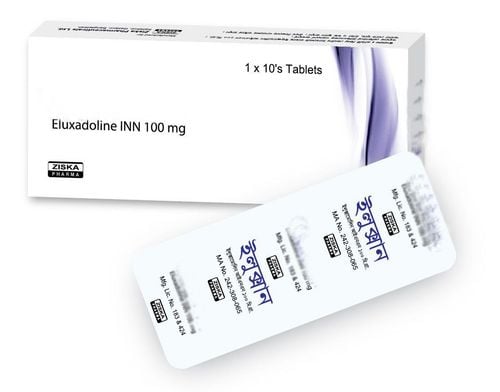This is an automatically translated article.
The article is professionally consulted by Master. BSCK II Phan Thi Minh Huong - Gastroenterologist - Department of Medical Examination & Internal Medicine - Vinmec Da Nang International General Hospital.Frequent abdominal pain, diarrhea with fever after eating, raw or loose stools with a feeling of abdominal pain, always feeling sad to go to the toilet, fatigue... All signs All of these are signs of a number of gastrointestinal diseases.
1. Irritable Bowel Syndrome
Irritable bowel syndrome is a disease related to digestive disorders. The disease is easily provoked to the colon, causing increased contractions, making the body's reaction to food become excessive. This phenomenon can happen with certain foods or because the patient is mentally stressed. Symptoms of abdominal pain, diarrhea... Recurrence is easy even though the intestines are not damaged.The disease can be accompanied by a number of dangerous diseases such as microscopic colitis, colorectal cancer, pancreatic tumor, gallstone disease,... The main symptoms of the disease are expressed in disordered manifestations. digestive function throughout the gastrointestinal tract.
In the upper part of the tube, the symptoms often cause gastric reflux, causing indigestion, bloating, making the patient uncomfortable in the abdomen, and cramping pain around the navel. After eating, I often feel a stomach ache.
When you have a bowel movement, feel bloated or relieve pain. With the lower part of the tube, the disease causes the colon to contract or become irritated, causing loose or hard stools. The number of bowel movements is changed.
Some symptoms show that the disease is already at a serious and alarming level such as weight loss, loss of appetite, bloody mucus, often in a small flat state. The disease becomes more dangerous if the patient is young, there is a family history of colon cancer. Laboratory tests showed anemia, increased erythrocyte sedimentation rate, increased BC.
2. Digestive disorders
Any malfunction that occurs in the process of digesting food is called a digestive disorder.Many disorders simultaneously affect several parts of the digestive system while others affect only one part or organ.
Common symptoms of digestive disorders include:
2.1 Disturbances of bowel movements Patient always feels severe abdominal pain, sometimes constipation, sometimes diarrhea, and irregular bowel movements. regular as before. Patients may experience more constipation than diarrhea or vice versa. The disease progresses slowly and then gets worse.

Bệnh nhân luôn cảm thấy đau nặng bụng từng cơn, lúc thì táo bón, lúc thì tiêu chả
2.3 Bloating Indigestion Bloating is one of the typical symptoms of digestive disorders. Patients present with abdominal distension, continuous belching or excessive bowel movements.
3. Chronic colitis
Unlike acute colitis, which can be easily cured, does not affect life and activities much, chronic colitis has many characteristic signs:3.1 Prolonged abdominal pain Patients often have longitudinal pain. according to the colonic framework, the position of the left half of the colon and the two pelvic fossa. The pain occurs in episodes, the pain is repeated many times, sometimes the pain is dull, the pain is relieved when having a bowel movement.
In particular, the patient will feel the abdomen is always distended, tight and very uncomfortable, especially located along the colonic frame.
3.2 Abnormal stools Chronic colitis causes the most obvious manifestation in the stool, but also very diverse, mainly loose stools, many times a day, many cases can be constipation, straining, bloody stools, with or without mucus.
There are patients with chronic colitis who have alternating constipation with loose stools, in general, the stool is unstable, making the patient uncomfortable after having a bowel movement.
3.3 Body fatigue, weakness Chronic colitis is a gastrointestinal disease that directly affects the digestion and absorption of nutrients, so the expression of weakness and fatigue is also obvious.
Accordingly, patients with Chronic Colitis often experience anorexia, poor appetite, fatigue, abdominal bloating, memory loss, poor sleep, irritability, anxiety...
There are patients Long-term chronic colitis is also clearly reduced, the body is thin, emaciated and lacks vitality.
Doctor Huong has over 30 years of experience in the field of Gastroenterology in which with nearly 20 years holding the position of Deputy Department, Head of Department of Hue Central Hospital. Currently, he is a Doctor of Gastroenterology - Gastrointestinal Endoscopy - General Internal Medicine Department of Vinmec Da Nang International General Hospital.
Please dial HOTLINE for more information or register for an appointment HERE. Download MyVinmec app to make appointments faster and to manage your bookings easily.













